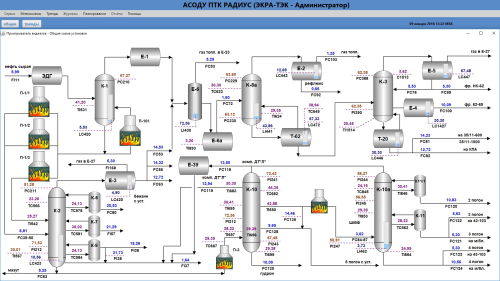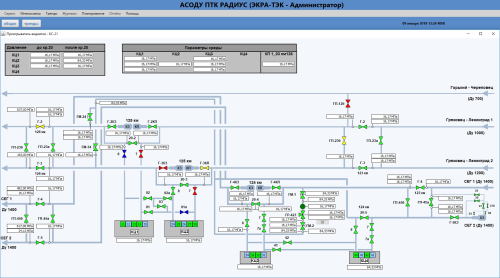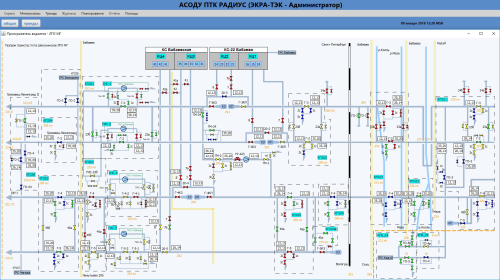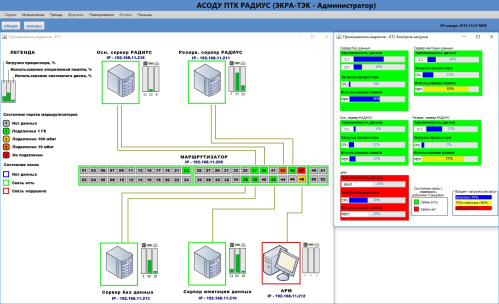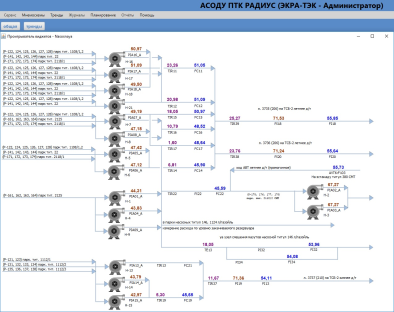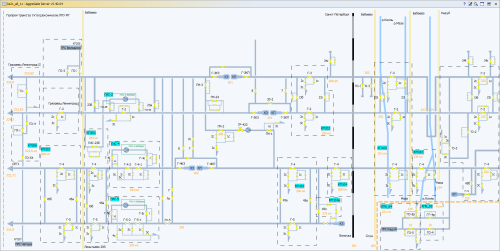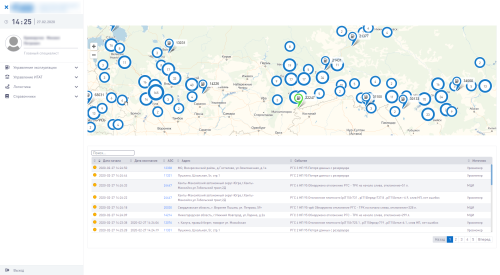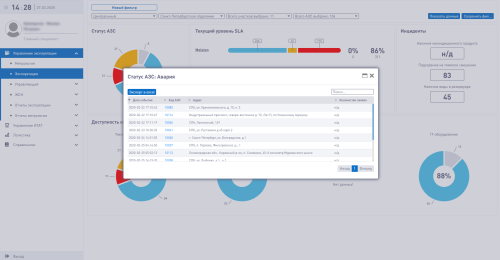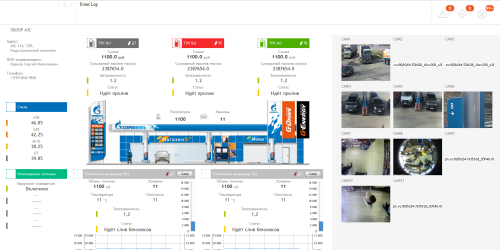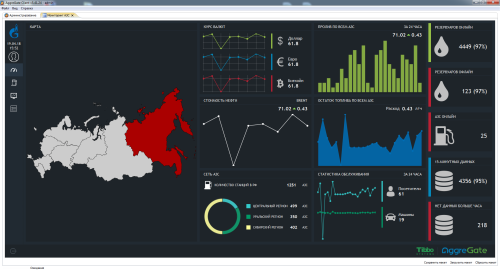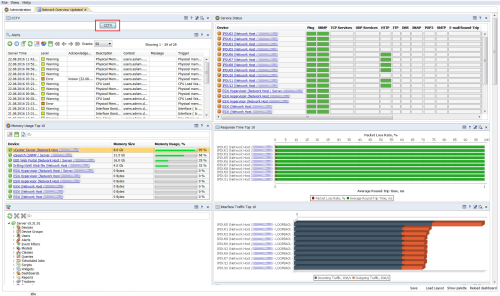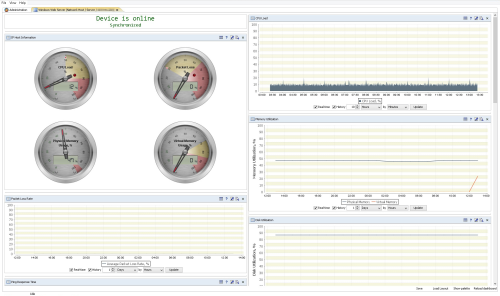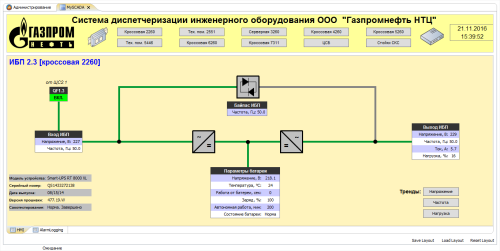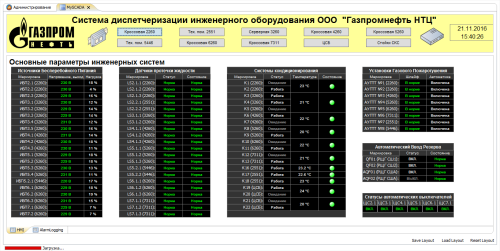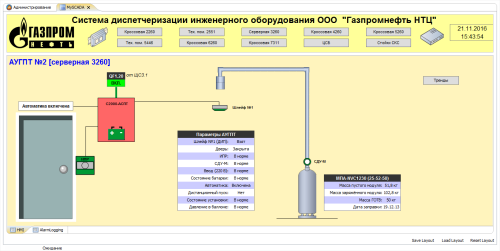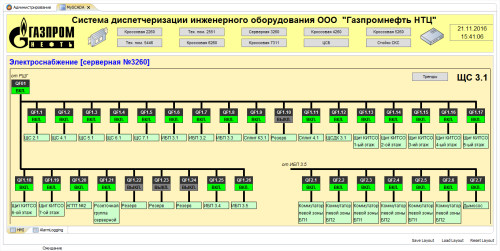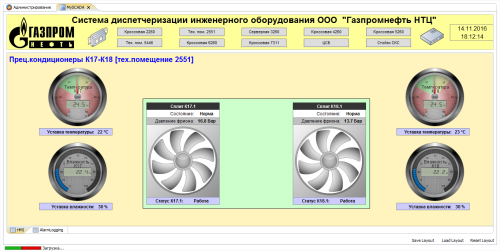IoT Solutions for Oil and Gas Industry
Today the oil and gas industry faces many serious challenges:
- Increasing difficulty and costs of finding a qualified workforce in distant locations
- Extra labor cost required to get the same amount of oil out of the mature fields
- Coordination of automation devices in the today’s distributed operations
- The necessity for improved customer demand forecasting
- Tight integration of multiple IT systems for the unified management approach
AggreGate Internet of Things Platform and AggreGate SCADA/HMI system provide an umbrella coverage for monitoring, managing and controlling both processing facilities and geographically distributed installations like pipelines and substation networks. The system can expand to many thousands of RTUs, providing an operational excellence at any scale.
AggreGate Solutions for Oil and Gas
Oil & gas solutions based on the AggreGate Platform and AggreGate SCADA/HMI can:
| Provide a unified SCADA platform for the field and pipeline operations | Interface operators via diverse client applications, from a smartphone to a unified operations console connected to a video wall |
| Monitor wells, compressor stations and pipe stations | Deliver critical messages to the field personnel via e-mails and SMS messaging |
| Conduct the data acquisition and supervisory control for oil refineries and gas treatment plants | Allow the development of reusable server and interface components designed for a service-oriented architecture |
| Enable a comprehensive oil/gas flow measurement and pipeline control/monitoring | Scale up the asset tracking and inventory to multiple sites and millions of assets |
| Launch the RFID-based pipe servicing, tracking and inventory | Accommodate diverse network scenarios addressing the bandwidth and latency issues typical in geographically distributed systems |
| Store the historical metering and metric statistics in relational, Round-Robin and NoSQL databases to find a proper balance between data granularity, footprint size and access performance | Connect to virtually any automation system, remote terminal unit (RTU), electronic field measurement (EFM) server, programmable logic controller (PLC), database, or business intelligence system |
| Operate a rich set of integrated data processing and visualization tools like alerts, event filters, scheduler, reports, queries, scripts, models, widgets, dashboards, etc. | Enable the grouped operations and centralized management of configurations and applications |
| Allow unattended operations and mobile operation management |
Process and Object Modeling
AggreGate modeling engine enables the companies to develop complex models of common industrial processes and homologated facilities, such as wells or pump stations. Those models can be later referenced to provide the rapid system expansion and protection of earlier engineering investments.
Supervisory Control for Oil and Gas Transportation
Gas Station Monitoring
Oil and Gas
Gazprom Neft
Russia

IoT Platform
AggreGate-based Infrastructure Monitoring Center creation has made it possible to unite all filling stations equipment – from coffee machines to fuel storage tanks - into a unified smart management system.
IT-Friendly Security
AggreGate security model is seamlessly woven into all aspects of the system architecture. While smaller installations rely on the user accounts matching individual operators, large multi-site deployments benefit from the role-based accounts and authentication via Active Directory or other LDAP server. Internal Access Control Lists (ACLs) ensure the fine-grained access to every system resource or resource group. All server-to-server and server-to-client communications, as well as most server-to-device communications, are performed via SSL-secured connections.
Monitoring Engineering and Network Infrastructure of an Industrial Facility
Control Rooms and Situations Centers
Being a system unification solution for oil and gas industry, AggreGate collects and processes the cloud-based big data. The overall system state is traditionally rendered in a situation center. There are two major sets of the AggreGate Platform modules sharing a common core - they offer a unified vision of the company's technological infrastructure:
- AggreGate Network Manager covers monitoring and management of the corporate IT infrastructure, enterprise applications and company's business services
- AggreGate SCADA/HMI takes care of the equipment control, field data acquisition, and telemetry
Despite both products are separate marketing brands, they are both based on the AggreGate Platform core, sharing configuration, event and metric database, data processing and visualization tools, security model, and even physical hardware whenever necessary.
Server Room Management
Oil and Gas
Gazprom Neft
Russia

SCADA/HMI
Creation of a unified situation center Jupiter for the company's engineering systems and servers umbrella monitoring, including UPS, PDU, split air conditioning systems, water service pipes, water treatment systems, chillers, cooling/heating packs, gas-extinguishing installations, environmental parameters.
Unrestricted Northbound and Southbound Integration
AggreGate Platform and vertical solutions built atop of it provide a unique broad range of connectivity options, from measuring the temperature sensor voltage to pushing the year-long aggregated statistics to IBM Maximo EAM. A number of device drivers, APIs and open-source SDK altogether guarantee that any data exchange scenario will be solved with minimal efforts. In addition, Tibbo competence centers located on the several continents have a vast experience of implementing even the most sophisticated integration objectives on a turnkey basis.
Benefits
| Faster deployment due to the open architecture, open-source SDK and APIs | Reduced technical knowledge requirements for the plant personnel |
| Seamless vertical integration of the field operations data into upstream systems | Live modification, even the most sophisticated configuration changes are applied without downtime or operations impact |
| Lower total cost of ownership (TCO) throughout all phases of the system lifecycle |

